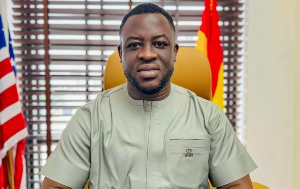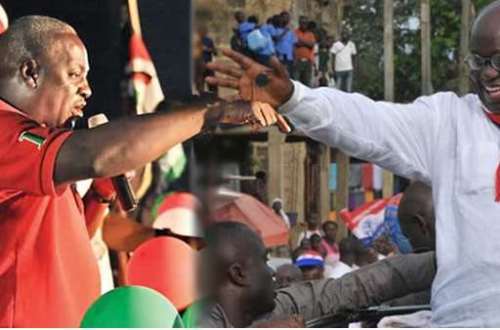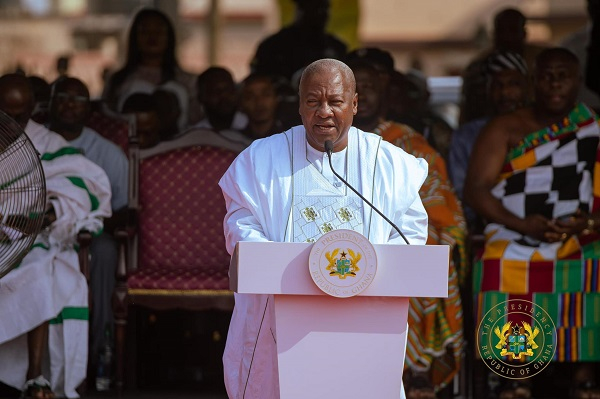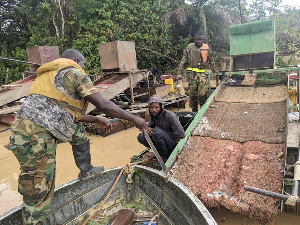Kennedy Agyapong’s “Religious Rants” Stir Controversy in 2028 NPP Flagbearer Race
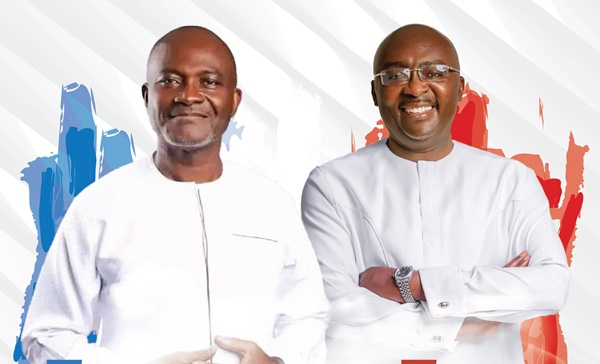
Former Assin Central Member of Parliament and 2028 New Patriotic Party (NPP) flagbearer hopeful, Kennedy Ohene Agyapong, has sparked heated national debate following comments many have described as religiously divisive and potentially inflammatory.
In a viral video circulating on social media, the outspoken politician is seen addressing a group of NPP supporters — believed to be part of the party’s grassroots — where he questioned the suitability of former Vice President Dr Mahamudu Bawumia as the next leader of the party. Agyapong’s remarks have generated strong public reactions, with many accusing him of stoking religious and tribal tensions ahead of the party’s crucial internal elections.
“Ghanaians Say They Will Only Vote for Kennedy Agyapong”
In the video, Kennedy Agyapong appeals directly to NPP delegates and sympathizers, urging them to listen to the voice of the people.
“If they want power, Ghanaians say it is only Kennedy Agyapong they will vote for,” he claimed emphatically.
He went on to ask whether the party was prepared to remain in opposition for another four to eight years should it fail to heed public sentiment.
“Do you want to remain home for another 4 years or 8 years? Are you ready for that? Let us listen to what the people are saying. Let us listen to what Ghanaians are saying.”
While this portion of his message emphasized electoral strategy and popular appeal, it was his comments about religion that have stirred the most intense backlash online.
“The Churches Spoke”: A Cryptic Religious Parable
Perhaps the most controversial part of Agyapong’s address came when he appeared to reference Dr Bawumia’s Islamic faith — though indirectly — as a reason for the NPP’s poor performance in previous elections. Without mentioning names, Agyapong said:
“In this church we are in, they spoke. I am speaking in parables. The church spoke but we did not listen and we have seen what has happened.”
His remarks have been widely interpreted as suggesting that Ghana is not prepared to elect a non-Christian leader — a statement many find problematic in a multi-religious society where both Christians and Muslims have long coexisted peacefully.
Social Media Erupts: “This Stinks of Division”
The reaction on social media was swift and fierce. Many Ghanaians, including political analysts, civil society advocates, and ordinary citizens, condemned Agyapong’s comments.
On X (formerly Twitter), a concerned user responded:
“This man has nothing good to offer the NPP and Ghana. Anytime he opens his mouth to campaign, his message demonstrates division on religious and tribal lines. This stinks in a country like ours.”
Others warned that such rhetoric could threaten national unity, especially in a country that prides itself on religious tolerance.
One user posted:
“This is not the kind of leadership we need in 2028. Ghana has always been a religiously diverse but united country. We cannot let politicians destroy that harmony for their own gain.”
A Worrying Turn in NPP’s Internal Politics?
The NPP is preparing for a hotly contested flagbearer race ahead of the 2028 general elections, and Kennedy Agyapong is expected to face strong competition from figures like Dr Bawumia, who previously served as Vice President under President Nana Addo Dankwa Akufo-Addo.
While Agyapong’s campaign has always been fiery and unfiltered, observers note that this latest outburst could damage the party’s unity and image if not swiftly addressed.
Political analyst, Kwesi Boakye, told The Press:
“Campaigns must focus on ideas, policies, and vision — not the faith or ethnic background of candidates. If the NPP tolerates these statements, it could affect their national appeal, especially among moderate voters.”
Religious Leaders Yet to Respond
As of now, major religious bodies — including the Christian Council of Ghana and the Office of the National Chief Imam — have not officially responded to Agyapong’s comments. However, pressure is mounting for religious leaders to speak up and affirm Ghana’s tradition of peaceful coexistence and religious inclusivity.
The Bigger Picture
This incident highlights a broader challenge within Ghanaian politics: the use of identity-based campaigning. While Ghana has largely avoided religiously motivated political violence, recent elections have seen a creeping trend of politicians using ethnic or religious undertones to sway voters.
As Ghana prepares for the 2028 elections, many believe that this must be a turning point where voters reject divisive rhetoric and demand issue-based politics.
Kennedy Agyapong’s recent statements may have solidified his position among certain NPP loyalists, but they have also opened up uncomfortable questions about religion, leadership, and national unity. As political temperatures rise, it remains to be seen whether the NPP will act to heal these divisions or allow them to deepen in pursuit of power.
One thing is clear: Ghanaians are watching — and listening.
Source: Thepressradio.com

